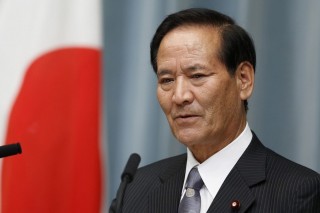Loading
Search
▼ Japan Agriculture Minister Nishikawa Resigns
- Category:Other

WALL STREET JOURNAL
Japanese Agriculture Minister Koya Nishikawa abruptly resigned over a fundraising scandal Monday, depriving Prime Minister Shinzo Abe of his point person on widely anticipated agriculture changes only months after he was chosen for the job.
Mr. Nishikawa’s resignation comes as Mr. Abe’s Liberal Democratic Party is expected to submit legislation to parliament next month that would scale back the political power of small farming cooperatives, helping pave the way for the sector’s overhaul.
In a news conference, Mr. Abe said Mr. Nishikawa would be succeeded by Yoshimasa Hayashi, the man Mr. Nishikawa replaced as agriculture minister in September. Mr. Abe said Mr. Nishikawa’s resignation wouldn’t affect his plans for overhauls, emphasizing that Mr. Hayashi “is thoroughly familiar with policy issues.”
Mr. Nishikawa became the third Abe cabinet member to resign over political funding scandals since October, when two female ministers stepped down in quick succession. “I have tendered my resignation to avoid causing any more trouble to the cabinet,” he told reporters.
Mr. Nishikawa has been dogged by allegations of wrongdoing ever since he assumed his post. He said his branch of the LDP received a donation from the sugar industry just before Japan entered negotiations with the U.S. over the Trans-Pacific Partnership trade agreement in July 2013. The ¥1 million ($8,400) donation was made soon after the industry received government subsidies.
His branch of the party was also found to have received a ¥3 million donation from a lumber company in 2012, just after the company received major subsidies from the government. He has denied any wrongdoing and has returned the money.
Mr. Nishikawa’s resignation is unlikely to derail agriculture reforms, said Koya Miyamae, an economist at SMBC Nikko Securities, adding that his job was largely to “take the heat from the public about Mr. Abe’s unpopular policies.”
Still, the departure could create a headache for Mr. Abe, as he tries to push forward with unpopular policies that include a possible deal with the U.S. on the Trans-Pacific Partnership trade agreement. Despite two landslide general election wins, most recently in December, Mr. Abe still faces strong opposition within his party as he tries to push through painful measures to revitalize Japan’s economy through his “Abenomics” program. Critics outside the party say his policies have expanded the income gap and benefited mostly big corporations at the expense of consumers.
TPP negotiations are in their final stages, requiring careful political maneuvering at home so the market liberalization measures won’t provoke widespread backlash from the farm industry, a key support base of his LDP.
—Toko Sekiguchi contributed to this article.
- February 24, 2015
- Comment (0)
- Trackback(0)

